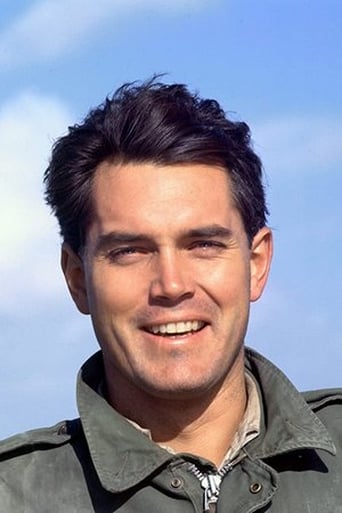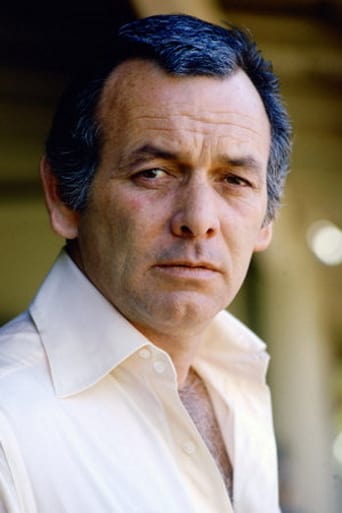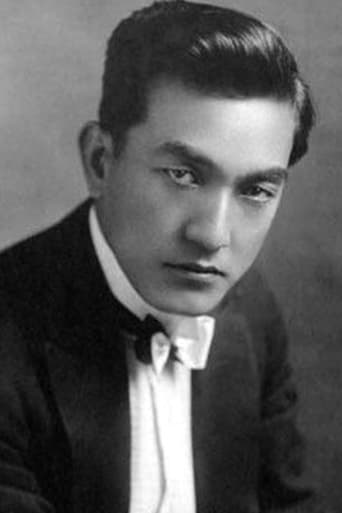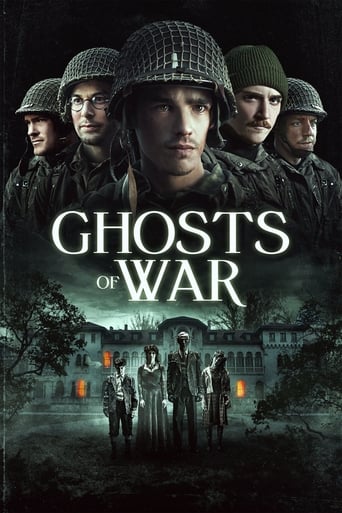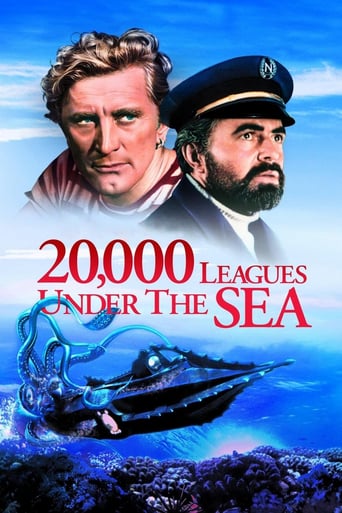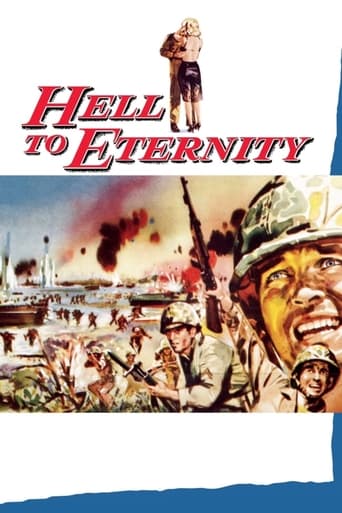

Hell to Eternity (1960)
Based on the story about Guy Gabaldon, a Los Angeles Hispanic boy raised in the 1930s by a Japanese-American foster family. After Pearl Harbor, his foster family is interned at the Manzanar camp for Japanese Americans, while he enlists in the Marines, where his ability to speak Japanese becomes a vital asset. During the Battle of Saipan, he convinces 800 Japanese to surrender after their general commits suicide.
Watch Trailer
Cast
Similar titles
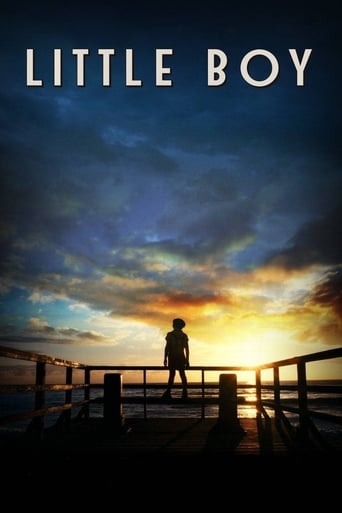
Reviews
Just perfect...
Bad Acting and worse Bad Screenplay
It’s an especially fun movie from a director and cast who are clearly having a good time allowing themselves to let loose.
I enjoyed watching this film and would recommend other to give it a try , (as I am) but this movie, although enjoyable to watch due to the better than average acting fails to add anything new to its storyline that is all too familiar to these types of movies.
When I saw a review of this one saying this is an "important true story" I could not believe my eyes. Anyone who has read historic accounts of Saipan would be aware there was no mass surrender of any Japanese Army on Saipan, which makes the entire battle sequence of this movie false. This is by far the best example of historic revision ever put to the American Public as even the tanks shown are not correct. Here is the real ending of Saipan - "In the end, almost the entire garrison of Japanese troops on the island — at least 30,000 — died. For the Americans, the victory was the most costly to date in the Pacific War: out of 71,000 who landed, 2,949 were killed and 10,464 wounded. Future Hollywood actor Lee Marvin was among the many Americans wounded. He was serving with "I" Company, 24th Marine Regiment, when he was shot in the buttocks by Japanese machine gun fire during the assault on Mount Tapochau. He was awarded the Purple Heart and was given a medical discharge with the rank of Private First Class in 1945."The only piece of truth in the battle part is that there were a large number of Japanese civilians on the Island and yes a bunch of them did commit suicide. Allied Artists did do an incredible job making the battle sequences look real, but this script on what happened on the island is just plain false. So the second half of the film is a flim-flam.As for the first half, I enjoy the acting by a very talented cast. Jeffrey Hunter, David Jansen, George Takai are all great and get plenty of solid support. The film starts with the kids being young and in a school yard fight. Then it brings the appeal of an American boy who is an orphan to live into a Japanese household in the 1930's. By the time the war starts, he has grown up with his new parents.The story as told does not exactly state whether the boy (Guy Gabaldon) is legally adopted by the family or not and I think back in that era that perhaps they would not have had to do that? It does pull in the viewer with Guy's relationship with his new family after his mom dies (we never meet his mom on screen as she is in the hospital ill when we first meet Guy).George Takei is 23 years young and this is his 9th role of a fine career in support as George Une. He is an older brother to Guy. The script can be admired for creating what would have been an extremely rare family situation for the 1930's, and early 1940's but it is quite easy to take apart.This is a film that addresses the issue of the internment camps and the race relations during this time period. It does not do it properly. The brief scene of the camp here gives little indication of how conditions really were in the real camps. It appears because of film length (over 2 hours) and limited budget (Allied Artists) that any real addressing of this could not be done. In a way, the worst scene in the film is the party where we have Americans and Japanese mingling in a social setting. Some of the uncomfortable issues of this are brought up but the reality of the party itself is not really addressed very well. Then the film lurches suddenly from the party into the island battle.Screen Legend Sessue Hayakawa plays Gen. Matsui late in the film who Guy convinces to surrender his whole army though in dramatic form com mitts suicide after telling his troops to surrender. . The role here obviously a short dramatic one which he does well, but the way it is scripted does not give him the opportunity to show case his talent anywhere near what he did in Bridge Over The River Kwai 3 years earlier. This film is a showcase for Hunter's considerable talent. Unfortunately, the script is so fictional and the errors throughout the film so messed up that anyone with knowledge of the real events or even those who might pick up an accurate history book, should know this film just comes off as Hollywoodized. I do wish that race relations were this advanced in the era the film uses. The reality is that they were not, this is a wishful thinking script that does a major tragedy to a very talented cast. My rating here is because of the script. It is very much worth watching for the talent of the cast. It is so easy to love mama-San and wish this was a true story.
Point number one is that this film is rated too highly by patriotic US reviewers. If watching for its entertainment value, you may be disappointed. Having said that, it's no hardship to watch. First of all, Jeffrey Hunter is serious eye candy - hard to take your eyes off. Quality-wise, the first part of the film rolls along quite satisfactorily. The early army stuff is not so good. As other reviewers note, there is a bizarre "women and booze" section in the middle of the film which seems to be developing a female character (the sulky redhead)to be of some significance, only for her to be dismissed as a one night stand. I fancy that studio executives said on seeing rushes "this film lacks popular appeal - bring in some female nudity". The argument might be that it brings some balance to the depiction of combat heroes, but the result is, it is poorly integrated and goes on way too long. Frankly I found the David Janssen character so unattractive in this section I didn't mind when he later got topped by the Japanese. This was a serious loss of empathy since the Jeffrey Hunter character is supposed to be seriously upset by the loss of his friend. There's plenty of tension in the Saipan scenes, and some pathos. But at times the American marines saunter about Saipan with bland relaxed expressions, which I suspect may not have been the case with actual combat. The finale is good. The film misses out on the opportunity to finish up with a factual summary, which I for one would have appreciated.
Excellent war movie. Excellent drama. Phil Karlson directs with less than an A-movie budget, but comes up with outstanding war action scenes and the best from his talented cast. The story is based on the real life story of Guy Gabaldon, who enlisted in the Marines and became a hero in the Battle of Saipan by persuading 2,000 Japanese soldiers to surrender. Guy was adopted by a Japanese family after his mother died. After Pearl Harbor, the young man from Chicago was turned down by the Army due to a split eardrum...but being able to speak Japanese fluently the Marines knew he was of use to his country.At this particular time HELL TO ETERNITY contained harsh and violent war action. Most of the brutality being needed to send the message of the urgency in this powerful story. Cabaldon as a child is played by Richard Eyer. The adult Cabaldon is portrayed flawlessly by Jeffrey Hunter, honestly and with no lack of emotion. Also in the cast: David Jansen, Vic Damone, Patricia Owens, George Takei, John Larch, Nicky Blair and Sessue Hayakawa as Japanese General Matsui. This movie deserves to be ranked with the best of the genre.
I have had the privilege of viewing this movie on numerous occasions. Back when I was growing up, war movies, such as this, were shown on TV quite often. This movie was one of the many small bits and pieces of how I view certain events and human behaviors that make up my personality (in a positive way). Fortunately, even thought the movie takes some liberties with the truth about the life of Guy and his life, the more important moral messages about war, human emotions, race relations and the Japanese Internment controversies more than make up for these inaccuracies. For whatever reasons, this movie, I believe, has allowed me to become a more accepting/open human being of other cultures and races. It taught me family values and the frailty of the human condition (not to mention the horrors of war). Given this was a "war movie", it is a credit to the director, actors and writers that I was affected in other more important areas of my makeup than that of just history and/or war. I salute this endeavor. I highly rate it. Particularly for those who have problems with the issues I mentioned above. May Guy rest in peace (1926 - 2006)
